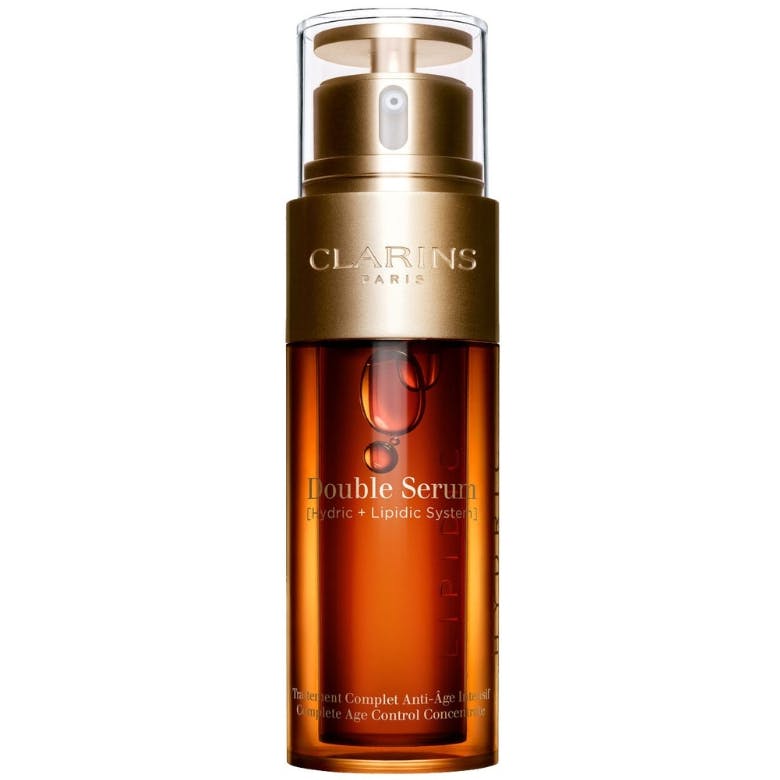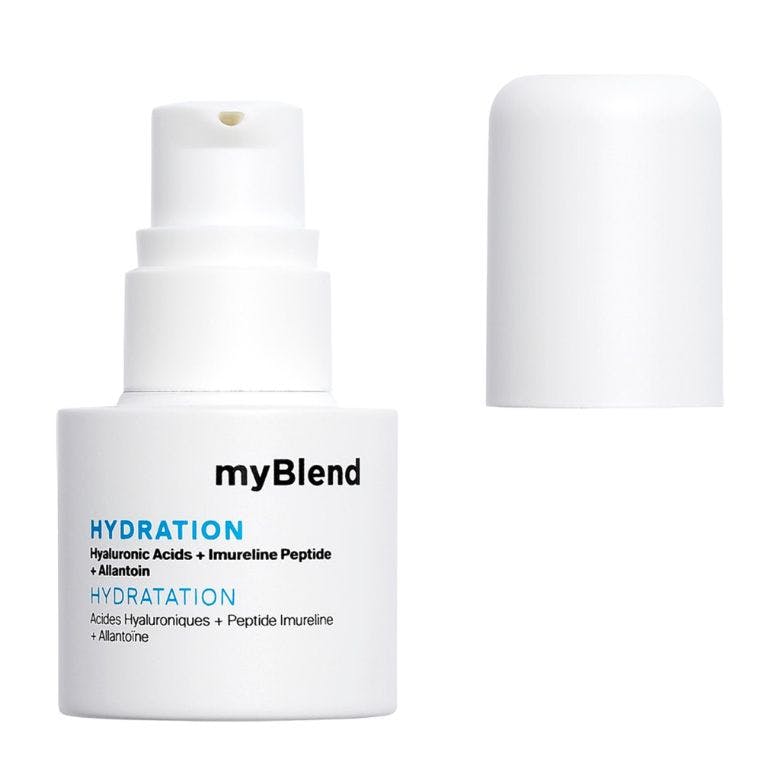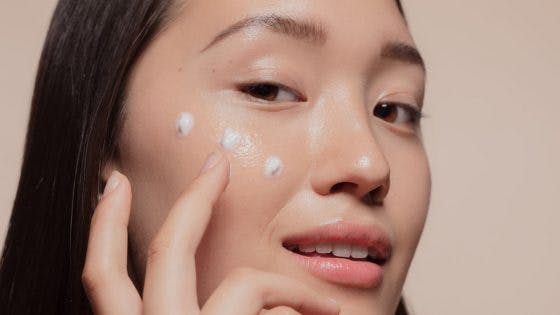The Best Collagen Peptides Explained
6 minutes read
When it comes to maintaining a youthful and vibrant complexion, collagen peptides have become a hot topic of conversation in the beauty industry. But what exactly are collagen peptides, and how can they benefit your skin? Beauty Daily spoke to Ridah Syed, Senior Medical Aesthetician at Skinfluencer London, who helped us delve into the world of collagen peptides – exploring their benefits, effectiveness, and why we should incorporate them into our skincare regime.

What are collagen peptides?
To understand collagen peptides, it’s important to grasp the concept of collagen itself – a protein composed of 19 different amino acids, responsible for maintaining the skin’s suppleness, hydration, and overall vitality. “Collagen makes up around three-quarters of the skin, but from your mid-20s, you will lose approximately 1% of your collagen supplies each year,” Syed explains. “This will lead to the onslaught of wrinkles as skin becomes less supple, and it is also likely that hydration, antioxidant support and immune defence will be compromised as collagen is depleted.”
Collagen peptides, featured in skincare formulations and supplements, are derived from natural collagen sources. However, they are formed of shorter chains of amino acids compared to the intact collagen protein. “Collagen is a protein comprised of 19 different amino acids,” Syed continues. “If you ingest it via supplementation, the digestive tract will break it down into its constituent amino acids, which will then be released into the bloodstream, without any guarantee they will reform in the same sequence to make collagen,” Syed adds. Therefore, collagen peptides, featured in skincare formulations and supplements, are derived from naturally-occurring collagen but are formed of much shorter chains of amino acids to make them more effective.
Read: Dehydrated vs Dry Skin: What’s the Difference?
The difference between collagen peptides and marine collagen
You might have encountered terms like hydrolysed collagen and collagen peptides, wondering if they differ. “Words such as hydrolysed collagen and collagen peptides are often used interchangeably,” Syed says. Both collagen peptides and hydrolysed collagen refer to the same thing – a form of collagen that has undergone the process of hydrolysis, breaking it down into smaller, more readily absorbable chains of amino acids. Collagen supplements can be sourced from various origins, including animal (typically bovine), marine (from fish), or vegan proteins like chickpeas. They are commonly available in powder or capsule form. “Most collagen supplements come in the form of a powder, which can easily be added to water or juice, as well as in capsule form,” Syed adds.
Are collagen peptides the same as hydrolysed collagen?
Yes, collagen peptides and hydrolysed collagen are essentially identical. The terms are often used interchangeably to describe collagen that has undergone the hydrolysis process, resulting in shorter chains of amino acids.
Choosing the best collagen peptides
When it comes to choosing the best peptides to incorporate into your evening and morning skincare routines, it’s crucial to prioritise quality and reputable brands.

Clarins Double Serum, £42, combines the power of collagen peptides with a blend of potent plant extracts. Its lightweight and silky texture penetrates deeply into the skin, helping to improve elasticity, hydration, and overall skin tone. It’s a true multitasker that can address multiple signs of ageing.
 -/
-/
MyBlend Hydrating Serum, £60, is a luxurious hydrating serum enriched with collagen peptides. This serum delivers intense moisture and nourishment to the skin, promoting a youthful and plump complexion. It’s an ideal choice for those seeking deep hydration and a radiant glow.
Benefits of collagen peptides
Collagen peptides have been studied extensively for their potential benefits to skin health.
Improved skin moisture and elasticity
Collagen peptides enhance skin moisture and elasticity and vital to maintaining a youthful appearance. By promoting hydration and firmness, collagen peptides can help reduce the appearance of fine lines and wrinkles.
Read: Treatment For Wrinkles Above The Lip & How To Rejuvenate Your Mouth
Do collagen peptides work?
“While there is no harm in taking collagen supplements, getting the building blocks of the protein from a well-balanced diet should be the first step,” Syed explains. “That said, if the collagen supplement also has nutritional cofactors such as vitamins C and E, and zinc, this will improve skin elasticity and hydration in ageing skin. Some experts believe skin creams or moisturisers containing peptides cannot be absorbed fully by the skin and, for this reason, recommend oral supplements. Still, there was a study published that showed they can have effects on skin health after all.” So it’s a case of trying to see what works for you.
Read: Tried & Tested Ways To Tighten Slackened Skin
Collagen peptide side effects
While there are no known side effects of taking collagen peptides, if you are allergic to their ingredients (allergy to shellfish in the case of marine collagen), there will be side effects.
“If you use collagen-infused skincare that is not medical-grade quality, you may experience inflammation or skin breakouts due to additives, preservatives, heavy metals, or poorly sourced animal products included in the formulations,” Syed adds.
Can you take too much collagen peptide?
“The amount of collagen you should take depends on your form. For instance, a 2019 clinical study was published that found that taking 2.5–15 grams of hydrolysed collagen peptides each day may be safe and effective and of benefit to the skin,” Syed continues. “I recommend, however, always following the manufacturer’s guidelines about how much oral supplement to take daily.”
Can you take collagen peptides with high blood pressure?
If you have high blood pressure or any underlying medical conditions, it’s crucial to consult with your healthcare provider before starting any new supplements, including collagen peptides. They can provide personalised advice based on your health profile.
Can collagen peptides cause acne?
Collagen peptides themselves are not known to cause acne. However, if you’re using collagen-infused skincare products, it’s essential to ensure they are of medical-grade quality to minimise the risk of skin breakouts or inflammation. In skincare formulations, poorly sourced animal products, additives, preservatives, or heavy metals can trigger skin reactions.
Can collagen peptides cause diarrhoea, headaches, inflammation, or weight gain?
There are no known side effects specifically associated with collagen peptide consumption. However, as with any supplement or skincare product, individual reactions can vary. If you experience any adverse effects, it’s advisable to discontinue use and consult a healthcare professional.
Can I take collagen peptides while breastfeeding or pregnant?
During pregnancy or breastfeeding, you must consult your healthcare provider before introducing new supplements into your routine. They can provide personalised guidance based on your specific circumstances.
Can men take collagen peptides?
Collagen peptides are suitable for both men and women. The benefits they offer, such as improved skin moisture and elasticity, are not limited to a specific gender.
Read next: Everything You Need To Boost Your Collagen
Sign up for our newsletter
We will keep you in the loop for special offers, exclusive gifts and product news.

